Helping Our Kids Practice Biblical Earth Care While Worshipping the Creator Rather Than Creation
The Nature of Rest
What the Bible and Creation Teach Us About Sabbath Living
Intentional Parenting
Nature Studies
Apologetics
Adventure
Free Resource
Entrepreneurship
Homeschooling
Faith
Books
Categories
Master Naturalist, Bible teacher, author, wife, and mama of four! Join our adventures of discovering God while adventuring in creation.
I'm Eryn
Hey there!
Listen Now
Order now
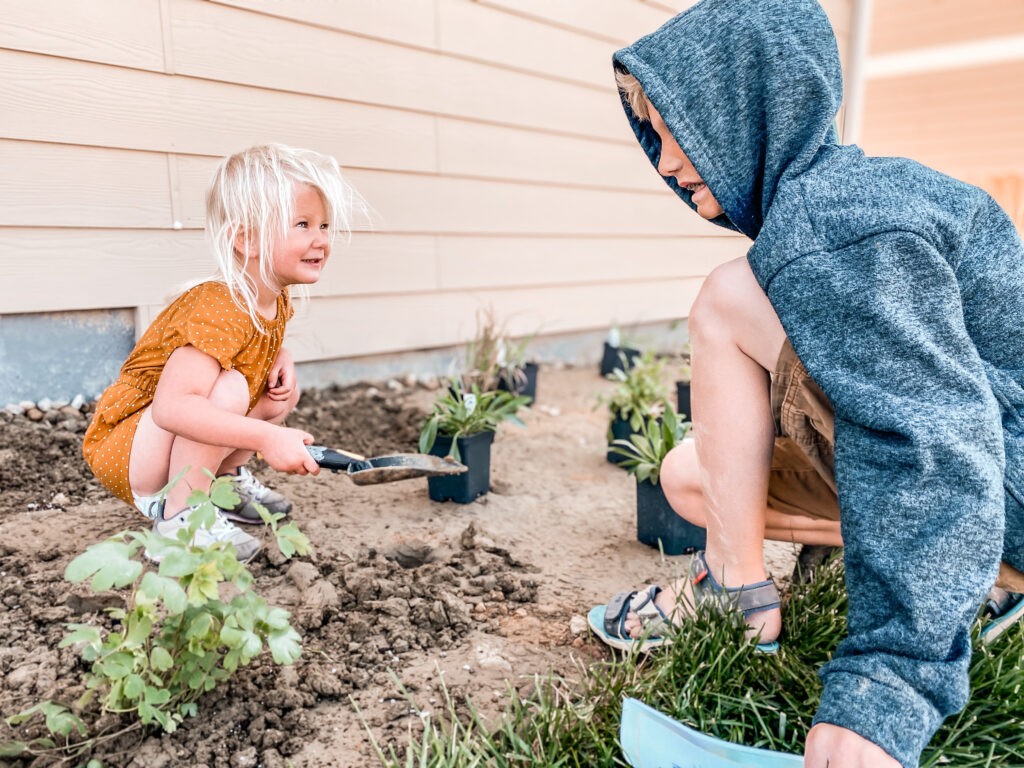
Have you noticed the sharp return in recent years to everything earthy? Forest schools, forest bathing, natural living, homesteading, organic farming… humanity senses a unique connection with the land, and there is a reason for that: we came from the soil.
In his book 24/6, Matthew Sleeth writes about humanity’s starting point: “The word Adam is derived from the Hebrew word for the ground, dirt, earth, clay. God sculpts the ground and blows the breath of life into it. Despite all our cell membranes, electron transport chains, and protein enzymes, we are still inexorably part of the earth.”
No wonder it feels natural to dig our hands into cool soil, walk barefoot in the sand, or stare up into a canopy of tree branches. We are a part of God’s creation. And yet—we are created in his image and set apart from the rest of creation for a relationship with him.
This connection is severed in society, where many look only at creation without lifting their gaze to the Creator. In this article, we’ll explore two reasons to practice biblical earth care and 3 activities to do so while pointing our kids to the Creator.
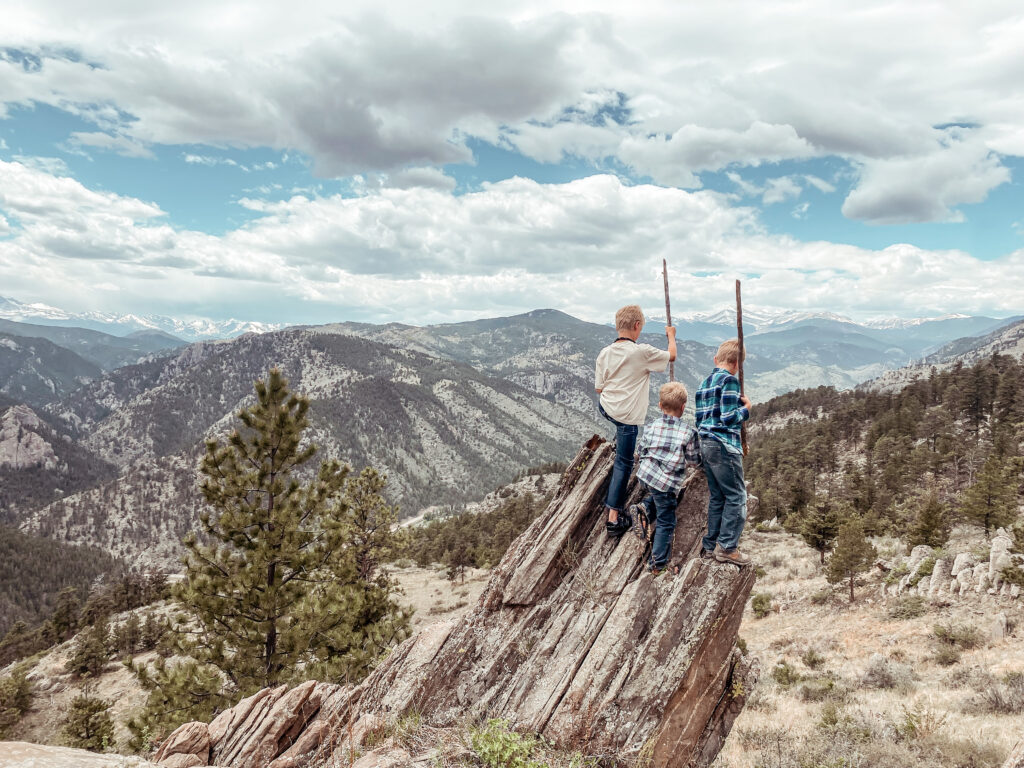
Society Worships Creation Rather Than Creator
During the scientific revolution, when premodern times lapsed into modern times, many people began abandoning the assumption of a creator God. You can glimpse the wake of this in today’s media, conversations, and curriculums. Reaching for a more tangible explanation for the world and our existence, they began seeking details and piecing together narratives—theories born of the soil and water—and abandoning anything that could not be proved in a glass beaker or test tube. Proving there is nothing new beneath the sun, the scientific revolution and shift to modern thinking reflected words written by the apostle Paul some 1,490 years before:
“For although they knew God, they did not honor him as God or give thanks to him, but they became futile in their thinking, and their foolish hearts were darkened. Claiming to be wise, they became fools, and exchanged the glory of the immortal God for images resembling mortal man and birds and animals and creeping things. Therefore God gave them up in the lusts of their hearts to impurity, to the dishonoring of their bodies among themselves, because they exchanged the truth about God for a lie and worshiped and served the creature rather than the Creator, who is blessed forever! Amen. (Romans 1:21–25, emphasis added)
Practicing Biblical Environmentalism
We see this in modern environmental movements where the emphasis is placed on saving planet Earth. Yet as followers of Jesus, we understand this planet has an end date. God has much more in store for us than remaining on a planet cursed by sin! In Revelation 21:1,5, we read, “Then I saw a new heaven and a new earth, for the first heaven and the first earth had passed away, and the sea was no more. . . And he who was seated on the throne said, ‘Behold, I am making all things new.’”
Our aim is not to save a dying planet that Scripture tells us is “subject to futility” (or subject to depravity and frailty). Instead, in practicing biblical earth care, we are modeling appreciation for all God calls “good” and preserving evidence for our Creator.
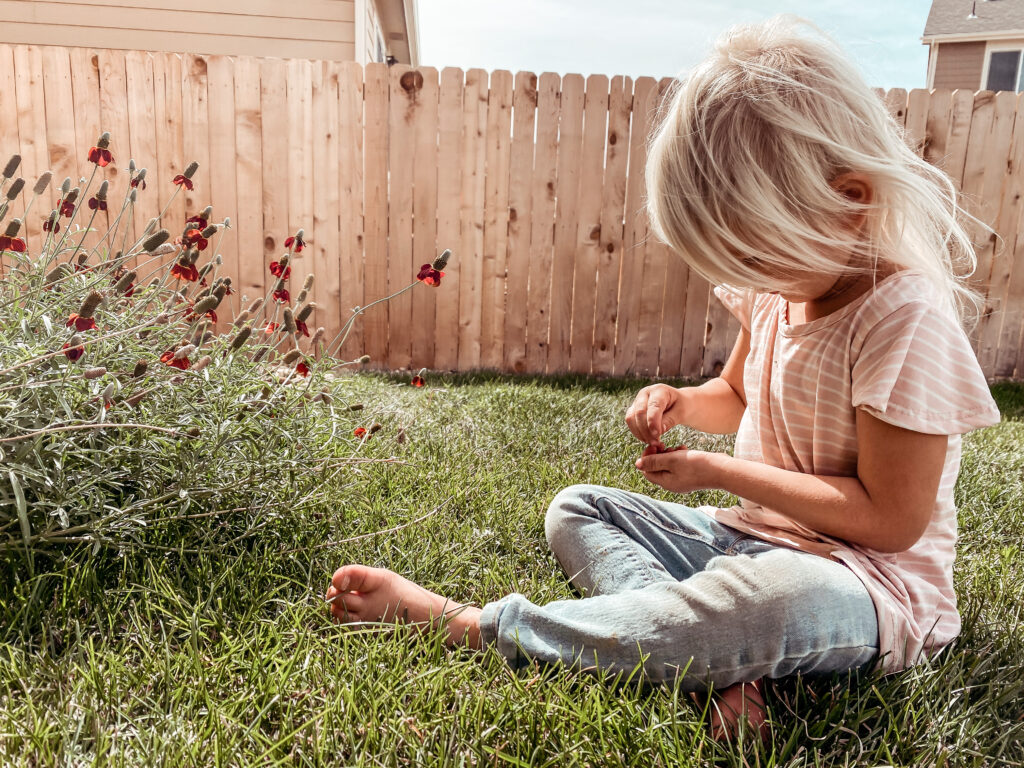
Caring for Everything God Called “Good.”
Are you overwhelmed by the brokenness of this world? Does it concern you to be raising children in the current cultural climate? While confusion, chaos, and brokenness surround us, we can point our kids back to everything lovely, true, honorable, and good. When God spoke the universe into place at the beginning of time, he called everything he made “good.” When we invite our kids into caring for the earth, we show them that we agree with God—that what he created is indeed good! This was, after all, the first job given to humanity before sin entered the scene. We read in Genesis 2:15, “The LORD God took the man and put him in the garden of Eden to work it and keep it.” The word “keep” means to observe, regard, and preserve. We take part in Edenic work whenever we kneel in the garden beside our child sowing seeds into the soil, pick up litter along the river, or fill bird feeders in the front yard.
Preserving Evidence of the Creator
I thoroughly enjoyed reading the historical novel Becoming Mrs. Lewis, a story of C.S. Lewis and his wife’s coming together. However, I realized, being historical fiction, it wasn’t entirely true to the story. Author Patti Callahan explained, “Lewis and Joy Davidman had an almost three-year pen friendship, but lamentably those letters have been lost. Therefore, I had to rely on the letters they wrote to other people.”
Because original letters were lost, she relied on peripheral sources. The same will be true with every element of God’s creation we lose: we are removed from the original events and we lose pieces of the story.
Romans 1:20 tells us that we can see who God is through what he has made, “For his invisible attributes, namely, his eternal power and divine nature, have been clearly perceived, ever since the creation of the world, in the things that have been made. So they are without excuse.”
Theologians refer to this as “Natural Revelation.” As we come into a deeper understanding of nature, we gain a deeper understanding of God’s primary revelation to us: the Scriptures. God’s written Word and created world complement one another. So what happens when we allow his creation to dwindle?
Earth Care is Gospel Work
The late naturalist Aldo Leopold once wrote about a young boy who was raised as an atheist. But then this boy observed warblers—a tiny migrating songbird my family loves to watch. Seeing their vast arrays of colors and the incredible migrational journeys that scientists can’t even quite understand, this boy decided there must be a creator God.
Even Charles Darwin experienced this. He shared about his conviction for the existence of God in his autobiography. He wrote about the “impossibility of conceiving this immense and wonderful universe, including man with his capacity of looking far backwards and far into futurity, as the result of blind chance or necessity. When thus reflecting I feel compelled to look to a First Cause having an intelligent mind in some degree analogous to that of man; and I deserve to be called a Theist.”
Nature serves as evidence for a Creator just as art points to an artist, design shows a designer, and an invention assumes an inventor. We can reconnect the dots between creation and Creator and invite our children to preserve what God has made so others can see him also.
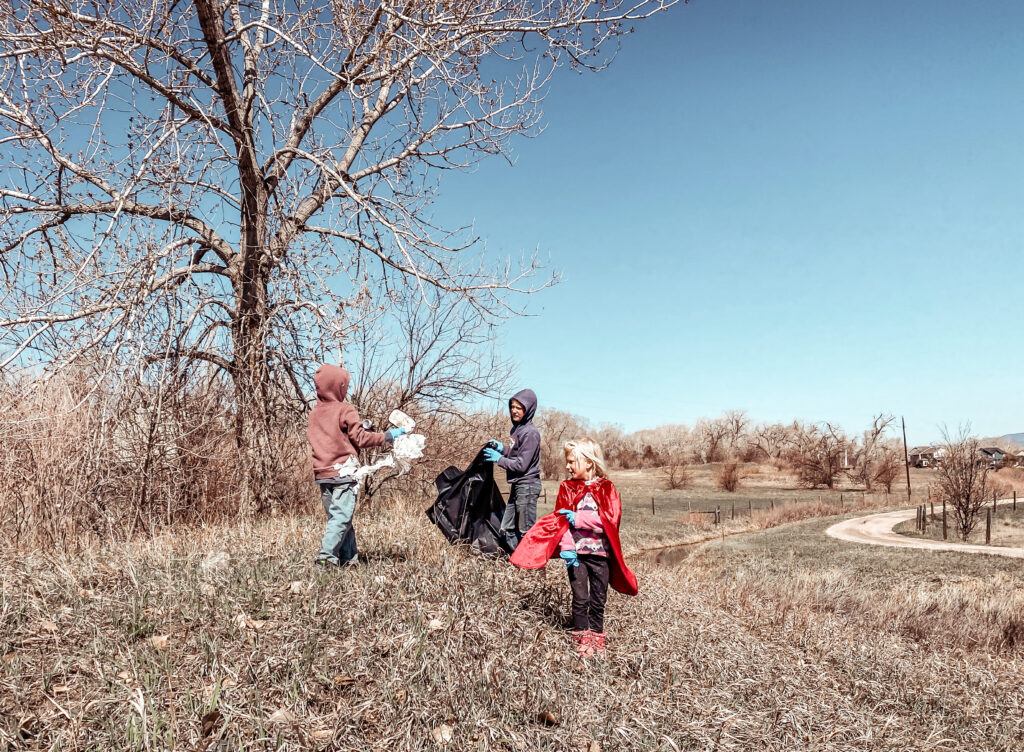
3 Ways to Practice Biblical Earth Care While Pointing Your Child to the Creator
1. Clean up old fishing lines around ponds, lakes, or rivers. Birds often use this as nesting material and become tangled up and die. You can share with your children that sometimes we don’t know something is dangerous and become tangled up in it. We can ask God for wisdom to know what is harmful and for healthy friendships that will help us avoid danger or help untangle us when we’re caught up in something unwise.
2. Pick up trash in a natural area. Share with your child how sometimes trash can compile in our hearts and minds, but we can work diligently to focus on everything lovely, good, true, and honorable (Philippians 4:8)
3. Make or buy and hang a bird feeder. Talk about how it’s fun to bring birds in near where we can watch them and take part in feeding them. But God has actually been caring for them since the beginning of time! Read Matthew 6:26-27. Tell your child it takes 3,000 to 4,000 insects to raise a baby house sparrow. At creation, God made plants to support the birds. He carefully planned to provide for them, and he cares even more for us!
Read about Biblical earth care in my new book
Rooted In Wonder: Nurturing Your Family’s Faith Through God’s Creation
Excerpts of this piece are from Rooted In Wonder.
Becoming Mrs. Lewis information
Charles Darwin Quote: Nora Barlow, The Autobiography of Charles Darwin (London and Glasgow: Collins, 1958), 92–93, emphasis added.
learn more
Raising kids stirs something deep in our souls — an innate knowing that our time is finite. Taking my kids outside in creation, I’m discovering how to stretch our time and pack it to the brim with meaning. God’s creativity provides the riches of resources for teaching the next generation who He is and how He loves us. Join our adventure and discover inspiration and resources for refusing rush, creating habits of rest, living intentionally, and making the most of this beautiful life!
I'm Eryn, Master Naturalist, Author, & Bible Teacher
Hey there!
Receive free inspirational resources for refusing rush, creating habits of rest, parenting with intentionality, and teaching our kids who God is through what He has made!
Inspired
Be
Brand + Website by Amarie Lael Design | TERMS & CONDITIONS + PRIVACY POLICY | Copyright 2011 - 2026 Eryn Lynum
Contact
Speaking & media
About
Books
Shop
Videos & Interviews
Email List
Stories
Free Downloads
Resources
Home
@erynlynumauthor
The Nature of Rest
What the Bible and Creation Teach Us About Sabbath Living
Now Available!
Order
X
Signed Copy
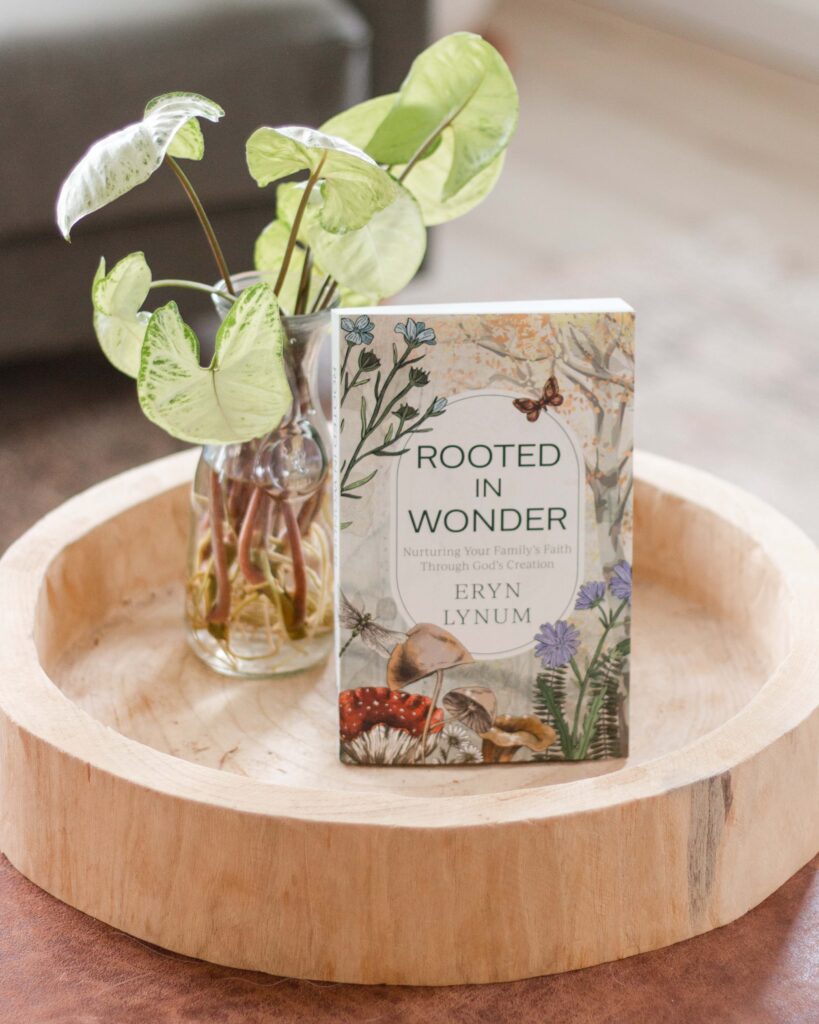
Add a Comment